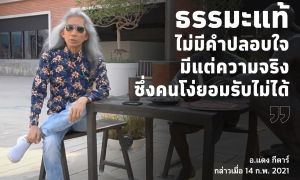Religion
Religion: (1) Source of Faith
(2) Mechanism for Control
Religion, throughout history, has served as a powerful force that shapes beliefs, values, and societies. While it provides solace, guidance, and a sense of purpose to many, it is essential to acknowledge its dual nature. This article explores religion as a form of control, tracing its origins to address human fears in a pre-scientific world and its role in contemporary society, where it can both unite and divide.
The Human Need for Answers:
In the face of uncertainty and the mysteries of existence, humans have long sought answers to profound questions about life, purpose, and the unknown. Religion emerged as an attempt to provide explanations, offer solace, and alleviate fears that permeated pre-scientific civilizations. It offered a framework for understanding the world and one's place within it, soothing existential anxieties.
Religion as a Mechanism of Control:
Over time, religion evolved beyond its initial role as a source of faith and comfort. It became intertwined with power structures, political agendas, and social hierarchies. Institutions and religious leaders wielded influence and control over their followers, shaping societal norms, moral codes, and individual behavior. Religion, in this context, functioned as a tool to maintain social order and exert control over the masses.
Conflict and Divisiveness:
The intertwining of religion with power often leads to conflicts and divisions. Throughout history, religious differences have fueled wars, discrimination, and persecution. Dogmatic beliefs and the claim to absolute truth can create an "us versus them" mentality, fostering animosity and intolerance. While religion has the potential to unite communities and foster compassion, it has also been exploited to incite fear, division, and hostility.
Modern Challenges and Shifting Dynamics:
In the modern world, religion continues to shape societies, but its influence is being redefined. Scientific advancements, increased access to information, and a more diverse global landscape have challenged traditional religious paradigms. Many individuals now seek a balance between faith and critical thinking, questioning dogmas and exploring spirituality beyond institutional frameworks. This shift has prompted a reevaluation of the role of religion in personal and societal contexts.
Embracing Individual Spirituality:
To navigate the complexities of religion, it is crucial to foster an environment that respects individual beliefs and promotes open dialogue. Recognizing that faith is a deeply personal experience allows us to separate the positive aspects of religion, such as community and moral guidance, from its potential for control and conflict. Embracing individual spirituality empowers individuals to explore their own paths, free from oppressive structures.
Conclusion:
Religion, as a form of control, emerged from a human need for answers and a desire to address fears in a pre-scientific world. While it has provided solace and guidance to many, religion has also been used to exert control and incite conflict. In the modern era, as society evolves and individuals question established paradigms, embracing individual spirituality and fostering open dialogue can lead to a more inclusive and compassionate approach to religion. By recognizing the complexities of religion, we can strive for a harmonious coexistence that respects diverse beliefs while transcending the divisive elements that have plagued us in the past.
Gen Z's Perspective
Gen Z's Perspective on Religion: "Leave Me Alone, I'm Living in the Real World"
The rant above encapsulates a common sentiment among Gen Z individuals regarding religion: a desire for personal autonomy and a rejection of forced beliefs. This generation, having grown up in a world saturated with information and diverse perspectives, often views traditional religious practices with skepticism and disillusionment.
Here's a breakdown of key points from the rant, highlighting Gen Z's perspective:
- Personal Choice and Autonomy: The individual emphasizes their right to choose their own beliefs and rejects any attempts to impose religious views upon them. This reflects a broader trend among Gen Z, who value personal freedom and self-expression.
- Disillusionment with Religious Teachings: The rant suggests a negative experience with religious teachings during childhood, where the ideals presented clashed with the realities of the world. This disillusionment can lead to a rejection of organized religion altogether.
- Negative Experiences with Religious Individuals: The mention of a neighbor's obsession with feng shui causing harm to the individual's family further reinforces a negative perception of religion. This highlights the potential for religious practices to be misused or misinterpreted, leading to negative consequences.
- Focus on the "Real World": The individual emphasizes their preference for living in the "real world" and rejects religious beliefs as irrelevant to their life. This reflects a pragmatic and practical approach, where tangible experiences and evidence hold more weight than faith-based beliefs.
- Rejection of Religious Rituals: The rant mentions not having practiced any religion for over a decade and experiencing no negative consequences. This suggests a view that religious rituals and practices are unnecessary for leading a fulfilling life.
- Respect for Others' Beliefs: While rejecting religious imposition, the individual also expresses respect for those who choose to practice religion, emphasizing the importance of individual choice and tolerance.
Overall, the rant provides a glimpse into the complex and often nuanced relationship Gen Z has with religion. While some may find solace and meaning in faith, others reject it as outdated and irrelevant. This generation values personal autonomy, critical thinking, and a focus on tangible experiences in the "real world." Traditional religious institutions and practices are often viewed with skepticism, and many Gen Z individuals seek alternative paths to spirituality or personal fulfillment.
Roles of Religion
Religion has long been a subject of debate and scrutiny, particularly when it comes to its role in society. The statement "Religion was made to control and steal money" is a reductionist take on a complex phenomenon. While it's true that religion has been used as a tool for control and exploitation, this is not the entirety of its existence. Let's dive deeper into this nuanced topic.
Religion as a Form of Government
(a Governments that keeping us Poor, that is)
Historically, religion and government have often been intertwined. In many ancient societies, religious leaders held significant political power, and religious doctrines were used to justify laws and social norms. This intertwining has, at times, led to the exploitation and manipulation of the populace. However, to say that religion was solely created for control is an oversimplification. Religion also provided a framework for morality, community, and understanding the world, especially in times when scientific knowledge was limited.
The Dual Nature of Religion
Religion's impact on society has always been dual-faceted. On one hand, it has been a source of immense comfort, community, and moral guidance for countless individuals. On the other hand, it has been used to justify wars, discrimination, and social hierarchies.
- Positive Aspects:
- Community and Support: Religion often fosters a sense of belonging and community. Religious congregations provide support networks for individuals, particularly in times of crisis.
- Moral Framework: Many people derive their sense of right and wrong from religious teachings. These moral guidelines have shaped laws and social norms throughout history.
- Hope and Purpose: Religion can give individuals hope and a sense of purpose, particularly in the face of life's challenges and uncertainties.
- Negative Aspects:
- Control and Exploitation: As noted, religion has been used to control populations and amass wealth. This is evident in practices like indulgences in medieval Christianity or the exploitation of followers by modern-day cults.
- Conflict and Division: Religious differences have been a source of conflict throughout history, from the Crusades to contemporary terrorism.
- Stagnation and Hypocrisy: Religious institutions can become hypocritical and resistant to change, often clinging to outdated practices and beliefs.
Scientology: A Case Study in Exploitation
The Church of Scientology is a modern example of how religion can be used for control and financial exploitation. Founded by science fiction writer L. Ron Hubbard, Scientology has been accused of manipulating its followers, demanding significant financial contributions, and employing aggressive legal tactics to silence critics.
- Financial Exploitation: Scientology charges exorbitant fees for courses and auditing sessions, promising spiritual enlightenment and personal success. Many former members have reported going into significant debt to pay for these services.
- Control and Manipulation: The church has been accused of using psychological techniques to control its members, encouraging them to cut off contact with non-believers, including family members.
- Aggressive Tactics: Scientology is notorious for its aggressive responses to criticism, including litigation and harassment campaigns against former members and journalists.
Understanding and Connecting with Others
To engage with others who hold religious beliefs, it's important to recognize and respect their perspectives. Ignoring the ways in which others interact with religion can hinder meaningful dialogue. By understanding their viewpoint, one can more effectively communicate the ways in which religion can be harmful, thereby fostering a more open and productive conversation.
Religion and Fear of the Unknown
Religion often arises from humanity's fear of the unknown. It provides answers to life's big questions and comforts those who fear death or the uncertainty of existence. Over time, some groups have used religion to form bonds and create a sense of community. However, many religious institutions have also become what they once preached against: hypocritical, backwards, and at times, obsolete.
The Age of Information
We live in what many call "The Age of Information", a time when knowledge is more accessible than ever before. Despite this, there are still pockets of ignorance and irrationality, such as anti-vaccination movements and other pseudoscientific beliefs (like ones that the Woke believe in). This highlights that human stupidity, as Einstein suggested, may indeed be bottomless.
Conclusion
In conclusion, religion is a complex and multifaceted phenomenon. While it has been used for control and exploitation, it has also provided comfort, community, and moral guidance. Recognizing this complexity is crucial for engaging in meaningful conversations about the role of religion in society. Life continually surprises us with its contradictions, but perhaps understanding these contradictions is the first step towards a more enlightened and compassionate world.
Final Thought
And as we navigate through these complexities, remember: life is short, enjoy it, and try not to get bogged down by the never-ending debates and frustrations. Whether you're believing in the religion or questioning the very fabric of society, find a balance that works for you and those around you. And if you're living with someone else, keeping the religious/political debate away might be the painful daily task you have to do every day for the sake of maintaining relationships (drops mic with frustration).
Religion and Addiction
Being religious might not cure the addiction but replacing it with a new one.
| ⚠️ Drug Usage Disclaimer: | The information provided in this text is for educational and informational purposes only. The author does not condone the use of psychoactive substances or encourage individuals to engage in any illegal activities, which may have serious physical, emotional, and legal consequences. The author cannot be held responsible for any illegal activities that readers may engage in based on the information presented in this text. The concept of spiritual experiences from psychoactive substance use is a controversial and subjective topic, and the author encourages readers to use discretion and make informed decisions regarding their own practices while seeking professional advice if necessary. |
|---|
Before going further, I do still agree that it’s good to overcome addiction to drugs, alcohol, and other dangerous and destructive things.
- Religion is making false claims of curing addiction, and I feel this is taking advantage of people at their lowest
- We wouldn’t respect a group or organization that tries to help cure addiction through recruiting people into a pyramid scheme. We also shouldn’t respect religions that pressure adherents into donating money to them for the same reason.
- These types of people are easier to recruit for extremist movements within a religion, and I feel again that this would be religion taking advantage of them.
- We have all heard stories of mega churches that take someone who can’t walk, have helpers force them up and parade them around stage, then say god cured them. We should dislike how religion treats people with dangerous addictions for the same reason even if the people no longer have dangerous addictions. The problem is with the religion/organization making false claims and using people at their lowest to try to score cheap points.
- These people are sometimes dicks about religion, like my brother in my example who’s passion for god is matched only by his hatred of LGBTQ people.
I know this might not be super common with every single theist, but I think it’s common enough to address. You sometimes hear about the “miracle of overcoming addiction”. Sometimes religion is marketed as a way to cure addictions. Most often, you hear it from former addicts themselves. The power of whatever god they now worship has allowed them to overcome their addictions.
These people are often the most passionate and zealous followers. They make their religion their entire personality. They are the ones who clearly vibe the most to worship music, often seeming like they’re even in some sort of trance. They are the first to share their conversion story with anyone who will listen and anyone who won’t.
My older brother, for instance, is one such person. I am not giving out personal info of course but suffice to say he used to be an alcoholic and now he’s the most passionate Christian you’ll ever meet.
These people haven’t cured their addictions or had them cured by god no matter what they or other religious figures say. They are just now addicted to religion. Religion gives them the good feelings they’re chasing. I think it’s disingenuous to call it some sort of miracle when really it’s just a person with addictive tendencies finding a new addiction. And ironically, some of the religious leaders are so goddamn good at capitalizing them.


